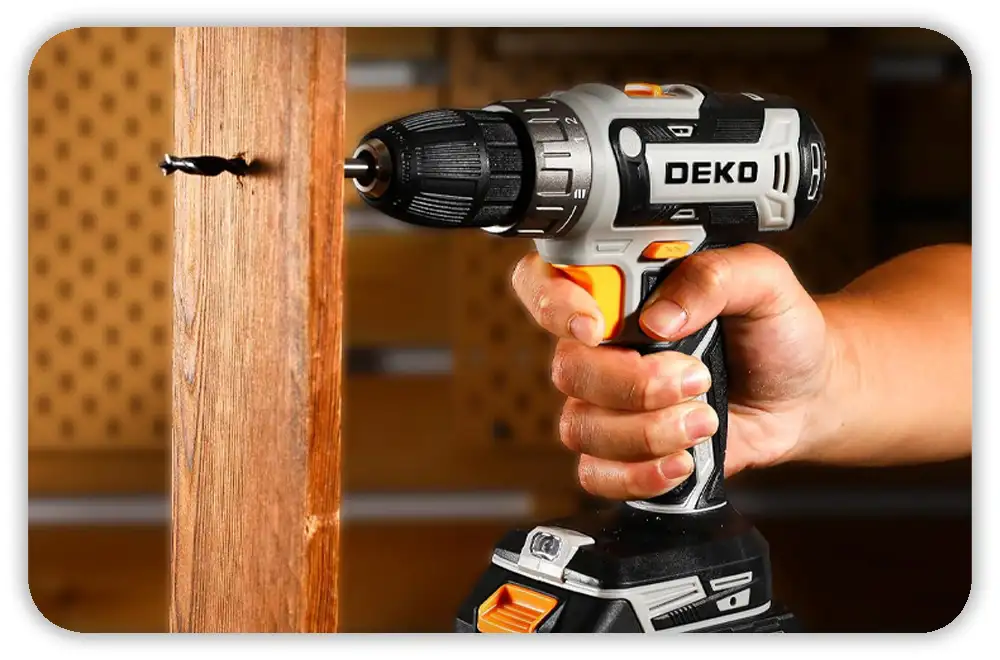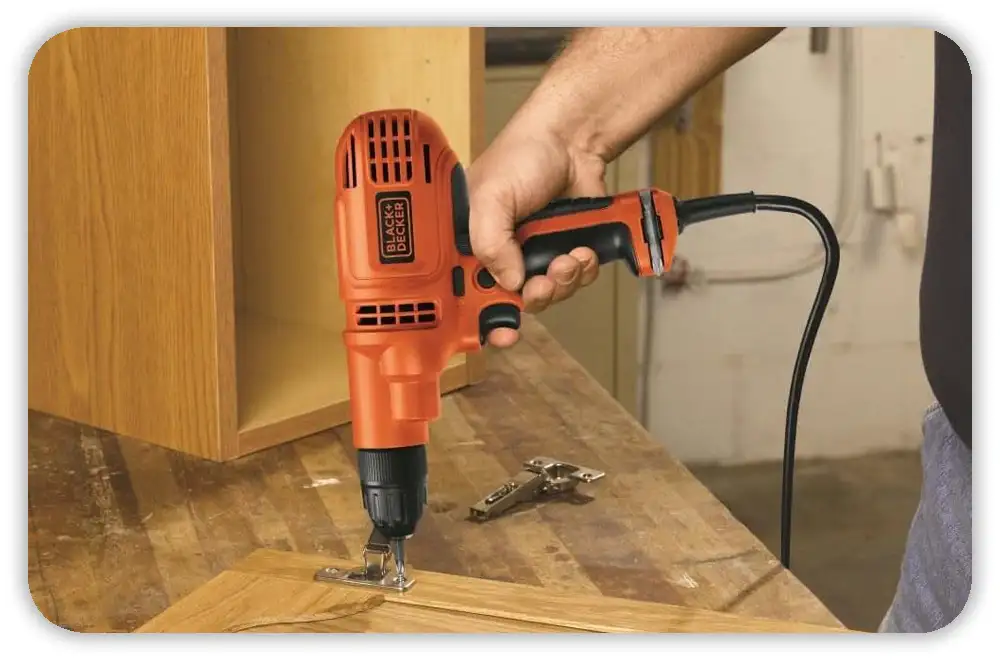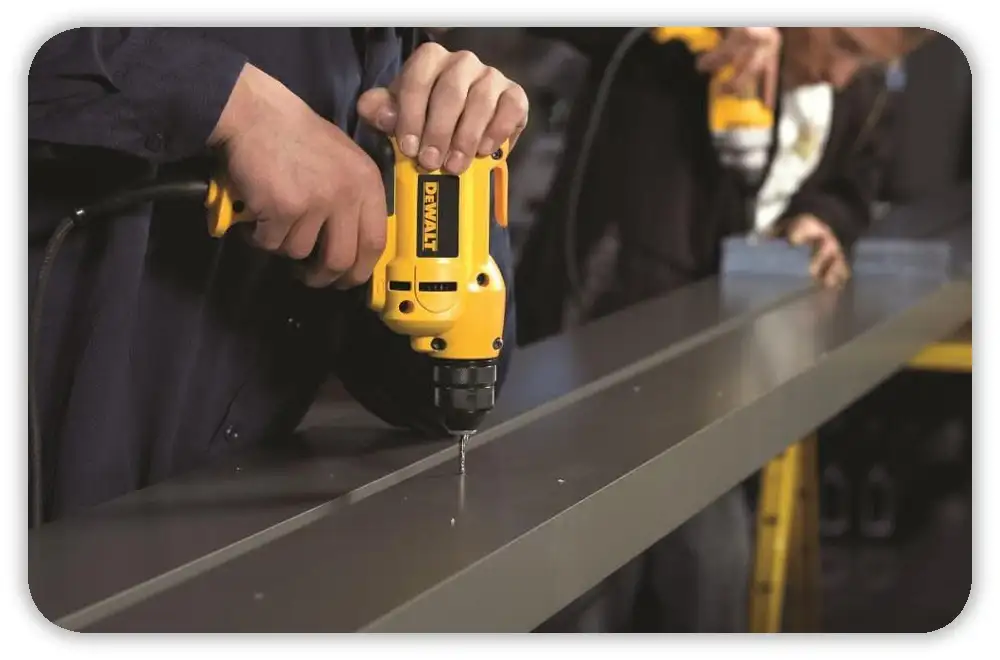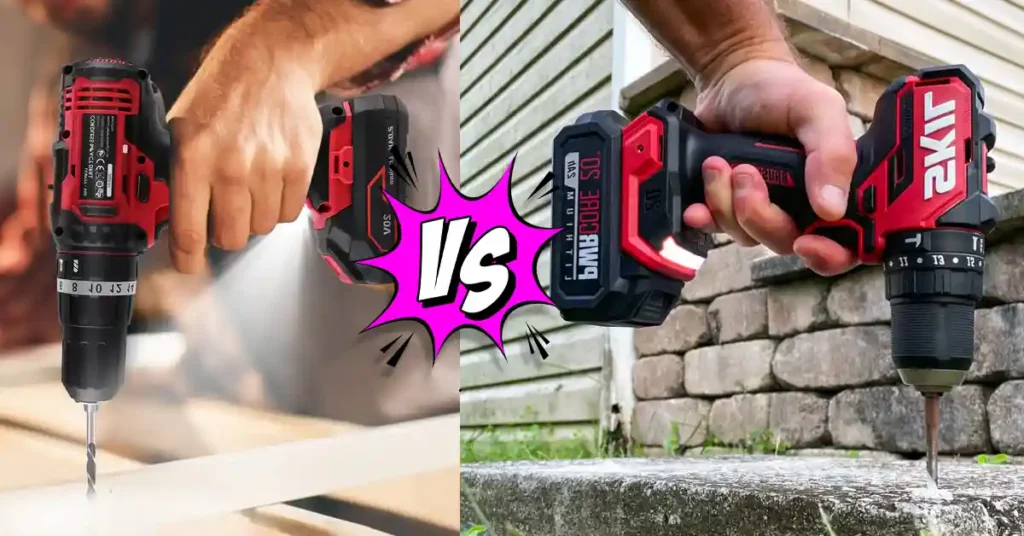I’ve used both cordless and corded drills for years — from framing in hot Texas garages to fixing shelves in cold Michigan winters. People often ask me which one is better. The truth? It depends on the job.
I’m not here to sell tools. I’m here to share what really matters when you’re holding a drill and ready to work. Here’s what I’ve learned from testing both side by side.
Table of Contents
Basic Function of Each Tool
Before comparing, let’s look at what each type does in real use.
Corded Drill
A corded drill runs on wall power, so it gives steady torque all day. When I drill through thick hardwood or concrete, it never slows down. Just plug it in, pull the trigger, and it keeps going.
On job sites, I’ve mixed drywall compound and drilled steel studs with mine. It stays cool and strong no matter how long I work. Corded drills are made for heavy jobs where power and consistency matter.
Cordless Drill
Cordless drills use lithium-ion batteries. Today’s models are strong and last longer than old ones ever did. I’ve used them to repair fences far from power and build furniture in my backyard. That freedom is hard to beat.
They’re lighter, safer, and easier to handle in tight spots. But when the battery runs low, the power drops a bit — especially in dense wood. Still, for most home projects, cordless drills are a dream to use.
Power and Performance
This is where the real difference shows.

Corded drills pull power straight from the wall, so they never weaken. When I drilled into concrete for a heavy shelf, my corded unit went through clean and fast.
Cordless drills are great for short jobs — driving screws, hanging drywall, or drilling light metal. But during long sessions, battery power fades.
If you want steady torque, go corded. If you want quick flexibility, go cordless.
Portability and Convenience
Cordless drills win here — no cords, no outlets, no tangles. When I built my shed, not dragging cords through dirt saved a ton of time. Corded drills can be powerful but clumsy when you have to move around a lot.
If your work takes you from room to room or outdoors, cordless makes life much easier.
Ease of Setup and Maintenance
Cordless drills are fast to start. Snap in a charged battery and you’re ready. They’re great for quick jobs and quick cleanups.

Corded drills take a few more seconds since you need a power source, but they’re simple. No batteries to swap or charge.
If you want instant setup, go cordless. If you want long-term simplicity, stick with corded.
Safety and Skill Level
Cordless drills feel safer for beginners. No cords to trip over, and they’re lighter to control. When I work on ladders or in attic corners, cordless drills make things easier.
Corded drills need more control. They have stronger torque, so a sudden twist can catch your wrist if you’re not careful. I always wear gloves and keep cords clear of sharp edges.
For new users, cordless is safer. For pros, corded gives more control and muscle.
Cost and Value
Cordless drills cost more upfront because of batteries and chargers. And yes, batteries lose charge capacity over time.

Corded drills are cheaper and can last decades. Plug in, drill, done. My old Makita corded drill has over ten years of wear and still runs smooth.
If you want durability and low cost, go corded. If you want freedom and speed, cordless is worth it.
Maintenance and Durability
Corded drills are tough and need almost no care. Keep the vents clean, check the cord, and you’re good to go. Mine has survived drops, dust, and years of heavy use.
Cordless drills need a bit more care. Keep battery contacts clean, rotate packs, and store them in a dry spot. In humid areas like Florida, I keep mine sealed in a toolbox to prevent rust and corrosion.
If you want something that lasts forever, go corded. If you prefer light and mobile, cordless will serve you well.
My Recommended Cordless Drills
Here are a few cordless drills that impressed me most:
- Milwaukee M18 Fuel – strong torque, long runtime
- DeWalt 20V Max XR – great balance and comfort
- Makita XFD131 – light, fast-charging, and smooth
You can find these easily at Home Depot, Lowe’s, or any hardware store. Replacement batteries are also easy to get.
My Recommended Corded Drills
These are my go-to picks when I need nonstop power:
- DeWalt DWD210G – heavy-duty and reliable
- Makita 6302H – smooth and steady
- Bosch 1006VSR – great speed control and build quality
Many pros still keep these on the bench for serious work. They’re tough, simple, and built to last.
When to Use Each
If I’m working near outlets, I grab the corded drill. It never fades and handles thick material with ease.
When I’m outdoors or moving around a lot, I go cordless. It’s faster, lighter, and safer to use.
Think of it this way: corded drills are for endurance, cordless drills are for convenience.
Final Thoughts
After years of using both, I’ve learned one thing — there’s no single “best” drill. Corded drills give you pure, steady power. Cordless drills give you freedom and speed.
I keep both in my workshop. My corded drill handles tough work. My cordless one takes care of quick fixes. Knowing when to use each makes every project smoother and more enjoyable.
FAQs for Cordless vs Corded Drills
Which is better, a corded or cordless drill?
Corded drills give steady power for tough jobs. Cordless drills offer freedom and ease. The best choice depends on where and how you work.
Do cordless drills have enough power for heavy-duty work?
Modern cordless drills are strong, but for long drilling or thick concrete, a corded drill gives more consistent torque and won’t fade over time.
Are corded drills more durable than cordless ones?
Yes, corded drills often last longer since they have no batteries to wear out. Keep the cord safe and vents clean, and they’ll run for years.
How long does a cordless drill battery last?
Most lithium-ion batteries last 2–4 years with care. Keep them clean, charged, and dry to get the best performance for your cordless drill.
Which drill is safer for beginners?
Cordless drills are lighter and safer to handle. They reduce tripping risks and offer better control, especially for new users or tight spaces.

